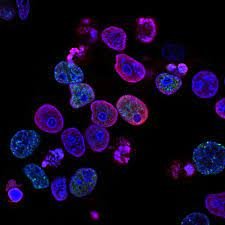Generally, the earlier a cancer is detected, the better the prognosis. Early detection can impact the availability and effectiveness of treatments, leading to higher patient survival and quality of life.
Technological advancements in the medical field have enabled oncology healthcare professionals to provide more accurate diagnoses and better treatments for cancer patients. Nowadays, there are lots of screening programmes and incentives to ensure the earliest possible detection of all types of cancers. Some common screening tools include mammography, colonoscopy, Pap smears, and regular blood tests.
Below, we’ve discussed why early cancer detection is crucial for the health and survival of patients.
Better Chance of Survival
By detecting cancer early enough, the cancerous cells may be completely eradicated with radiotherapy or chemotherapy. Conversely, late detection is associated with poorer outcomes and a higher risk of fatality.
This is because the longer a cancer is present in the body, the more likely it is to metastasise (move to another part of the body via the bloodstream). The chance of survival after a cancer has metastasised is much lower than before it has migrated.
Therefore, early detection of cancerous cells enables healthcare professionals to destroy the tumour before it has a chance to spread and cause a rapid decline in the patient’s health.
Lower Risk of Side Effects
The side effects of intense cancer treatments include pain, hair loss, dysphagia, loss of appetite, weight loss, hair loss, and fatigue. These side effects make coping with a cancer diagnosis much more difficult and often lead to patients wanting to give up on their treatments altogether.
Because early-stage cancers usually require less aggressive treatments, they can minimise the risk and severity of side effects. This contributes to better patient satisfaction, emotional well-being, and quality of life. It makes overcoming cancer and celebrating strength more likely for patients of all backgrounds.
Wider Availability of Treatment Options
Detecting cancer at an early stage often means patients can receive a wider range of treatments compared to the treatment of late-stage cancer. Early cancers are often small and have not yet spread to other organs or lymph nodes. Therefore, they tend to be amenable to surgical removal or targeted therapies that are less aggressive.
Using less aggressive and invasive cancer treatments can reduce the associated side effects, lower patient pain, and increase treatment success.
Reduced Healthcare Costs
In countries with private healthcare systems, where patients must pay for medical care out of their own pocket (or via their health insurance company), ongoing cancer treatments can be very costly. Since cancer patients often require long-term therapies, the associated medical costs can quickly accumulate.
Early detection of cancer often enables healthcare professionals to eradicate the tumour more quickly and use more effective treatment methods than if the cancer is detected late into its development. In turn, this reduces the financial burden of cancer treatments for patients who are already dealing with high levels of stress.



